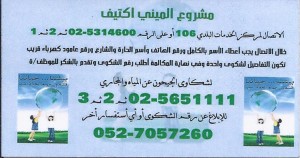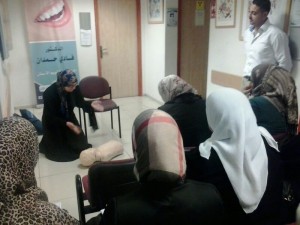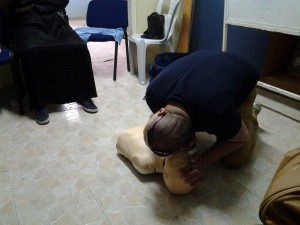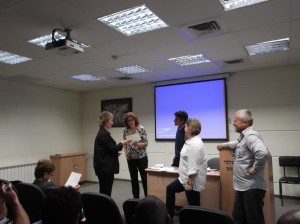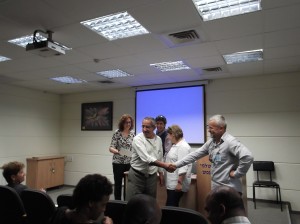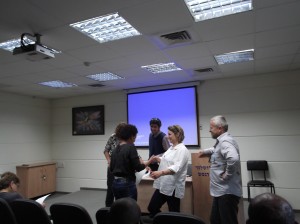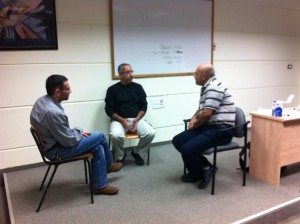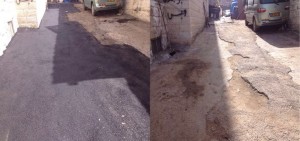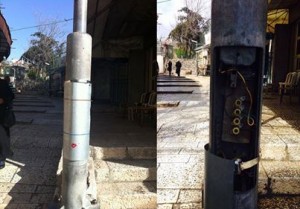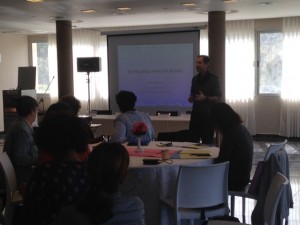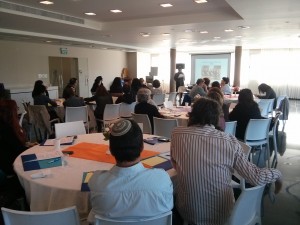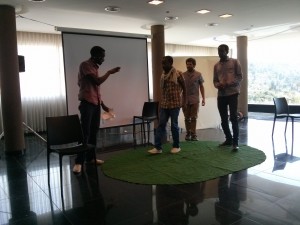Who are You Gonna Call? MiniActive!
An integral part of the MiniActive program includes training in effective methods and processes in improving physical infrastructure. As noted elsewhere in the blog, these methods include calling the hotlines of municipal and other services, meetings and site tours with service providers, writing letters, network-building with the MiniActive Facebook page, and more.
Today, MiniActive added something new to its arsenal – catchy new magnets. The magnets feature detailed explanations about how to register a complaint with the various service providers, including the municipal hotline (106) and the Hagihon water company. It also includes the phone number of the MiniActive project in East Jerusalem.

